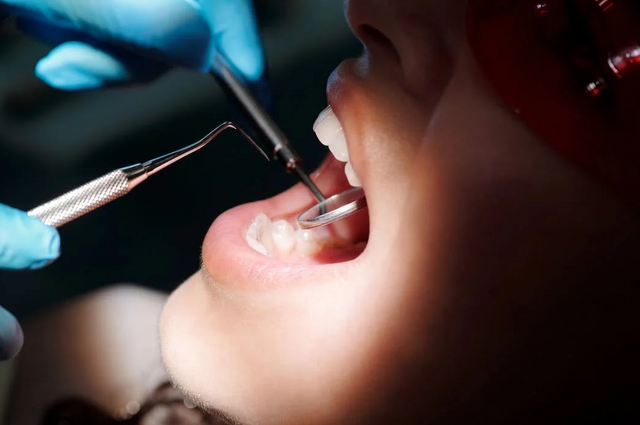
The services of a dentist differ from those of an oral surgeon. Oral surgeons are professionals who provide services that most dentists do not. They have the necessary equipment to do specific procedures on the jawbone, teeth, face, gums, and other oral structures. Dentists often specialize in oral healthcare. They often perform oral exams, denture and bridge installation, crown placement, root planing, scaling, basic tooth extractions, and root canals.
These services need competence, although they differ slightly from those a board-certified oral surgeon provides. These surgeons offer procedures such as bone and gum grafting, implant placement, wisdom tooth removal, orthodontic surgery, face reconstruction, ridge enlargement, and more.
When you have a common oral health problem, you go to your dentist for expert care. However, when the majority of oral procedures are required, it is time to consult with an oral surgeon.
Extractions of Teeth
One of the most common reasons patients contact oral surgeons is for tooth extraction. When you need a tooth out, you have two options: a simple or surgical extraction. When they are referred to an oral surgeon for an extraction, many patients are taken aback. However, this is frequently required when the tooth has a problem, such as being impacted or damaged under the gums. When the job is easy and does not require special attention, a dentist can handle it.
Implants for Teeth
Installing dental implants is another popular surgery performed by oral surgeons. These are replacements for missing teeth. The surgeon surgically implants them so they are strong enough to support a crown. Implants are held together by a titanium screw that the surgeon inserts. After that has healed, the dentist will fit and place a crown on top.
A patient who requires an implant frequently has another treatment first to make the bone thick enough for the titanium screw. Your oral surgeon will also do a bone transplant to ensure that the basis of the new tooth is strong. This surgery is safe and successful; your oral surgeon will have years of experience.
Dental implants that work with dentures are another type of implant. Dental implants are inserted during this surgery to hold the dentures in place. Many patients prefer this method of tooth replacement since it eliminates the need to remove the dentures for cleaning. They remain in your mouth like your natural teeth. The implants act as strong anchors, allowing you to wear dentures without difficulty speaking or eating. This can be done with either partial or complete dentures.
Whatever type of implants you require, an examination of your mouth, including the jaw, gums, teeth, and other structures, will be performed to establish the best strategy to assist you with implants. You will also be given a sedative to keep you comfortable and relaxed during the treatment. There are various sorts of sedation available, depending on what you require for your treatment.
Detection of Cancer
An oral surgeon does more than simply surgery. They can also detect certain types of cancer with an exam and, if necessary, a biopsy. If you are experiencing unusual symptoms and are concerned about the source of the problem, schedule an appointment with your oral surgeon. It's usually better to catch cancers early, so don't put off getting a condition looked out. Earlier diagnosis frequently means simpler and shorter treatments. It may also imply more successful treatment.
TMJ Illness
Another reason to see an oral surgeon is if you have a TMJ condition. An oral surgeon is typically better suited to handle this because it isn't only about the teeth. Problems with the Temporomandibular joint, or the joint that controls your jaw, cause the disorder. Many people acquire it from clenching their teeth, grinding their teeth, and so forth. An injury to the jaw or bone degradation can also cause it. When detected early, this issue can be addressed with a night guard for your teeth or something similar.
If a TMJ disease worsens, surgical joint repair may be required to correct the problem. Surgery may be required to change the position of your jawbone.